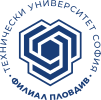ECTS code: BpEE
Forms of training: full-time
Terms of education: 4 years
Final examination: development and public defense of a diploma project for all forms and degrees of study
Admission requirements: grading after passing the candidate’s student’s exams in mathematics or physics, or matriculation examination
Access to further studies: Master’s Degree – full-time
Programme importance:
The major “ELECTRICAL ENGINEERING” combines classic and modern trends related to the numerous applications of electric energy in the modern world. The electrical engineers who have completed this major receive the knowledge necessary for the operation, repair and construction of facilities used primarily in the energy sector; electricity distribution; in the design and manufacture of electrical products.
General characteristics of the education:
The engineer majoring in Electrical Engineering works in organizations and companies with activity in the field of: design, construction, production, testing, tuning, operation, repair, marketing, management, trade, qualification and certification of electrical systems and equipment /electrical machines, electrical appliances, complete sets and aggregators, installation, household, transport, mining electromechanics, etc./, manufacturing and production lines in industry, agriculture, construction and transportation, computing, information, security, communication and lighting systems using electrical systems, as well as in the training of personnel and also in organizations and companies for the production, distribution, consumption of electricity and its transformation into other types of energy and vice versa, including the use of renewable energy sources.
The courses are carried out in a modern classroom and laboratory environment using modern equipment, computer technologies and software. Computer modeling and simulation, combined with real physical studies, provide an opportunity for students to adapt to their future work. The training is provided by highly qualified teachers with a strong research background and practical experience.
An engineer with a major in Electrical Engineering knows to a sufficient degree with applied orientation:
- the global environmental issues and sustainability, patent and commercial law, foreign languages for the use of specialized foreign language literature, economics, management, forming the humanitarian training;
- physics, chemistry, technical mechanics, machine elements and mechanisms, material science, technical documentation, programming and use of computer technology, safety engineering, etc., forming the technical preparation;
- mathematics, electrical engineering, electrical engineering materials, electrical measurements, semiconductor devices, electronic transformers, digital and microprocessor technology, telecommunications, forming the fundamental and theoretical background.
- the principles, methods, facilities for the generation, transmission, distribution and use of electricity and its conversion to other types of energy, including renewable energy sources, etc.;
- arrangement and theory of electric machines and their use; structure and theory of electrical appliances and their use, design and construction of appliances and other types of electrical systems and equipment; testing, diagnostics, reliability of electrical machines and appliances; electric drive; technology of electrical machines, appliances and equipment; modes of operation of electrical machines, appliances and systems, joint operation of electrical machines and appliances with electronic devices; electrotechnological appliances and processes, electrothermics, household electrical engineering, lighting and installation equipment, forming the special preparation.
An engineer with a major in Electrical Engineering is able to:
- develop and use technical, tender and other types of documentation in the field of electrical systems and equipment;
- test, install, adjust, operate electrical systems and equipment;
- organize and manage the production, repair and diagnostics of electrical systems and equipment;
- organize and manage administrative, commercial and economic activities;
- train executive staff;
- use computer and communication equipment.
Educational and professional goals:
Electrical engineering training is traditional for all prestigious universities in the world. It provides a broad base of theoretical knowledge and practical skills for the conversion and use of electrical energy and related facilities in all areas of modern life.
The electrical energy is required above other types due to the minimal losses acquired in the process of its production, transmission and use. For this whole continuous process to happen, it is necessary to study, design, manufacture and operate the various electrical equipment – e.g. Generators in power plants, transformers in substations, high and low voltage electrical appliances, etc. The continuous improvement of these devices guarantees efficient, reliable and environmentally friendly energy conversion.
Employment of the graduates:
The fields of operation of electrical engineers are: machine-building and repair enterprises and workshops for electrical machines, appliances and equipment; companies for manufacturing and service of electrical household appliances; design companies and organizations, trade companies and more. They can work in mechanical engineering, metallurgy, the chemical industry, mining and processing of minerals, transport and power plants for the operation and maintenance of electrical equipment.
The graduates in the major “Electrical Engineering” can work as designers, constructors, researchers and specialists in development activities in companies from the industry; as operational and repair personnel at the sites of electricity distribution; as researchers and teachers in technical high schools and technical colleges; as experts and managers in trade and repair companies.
